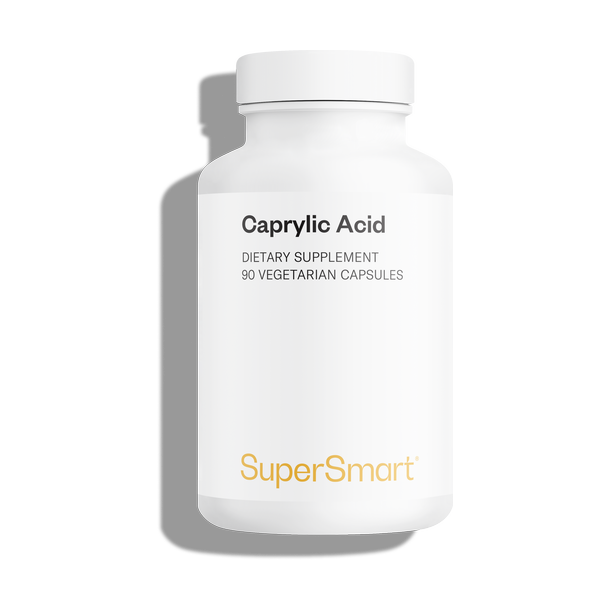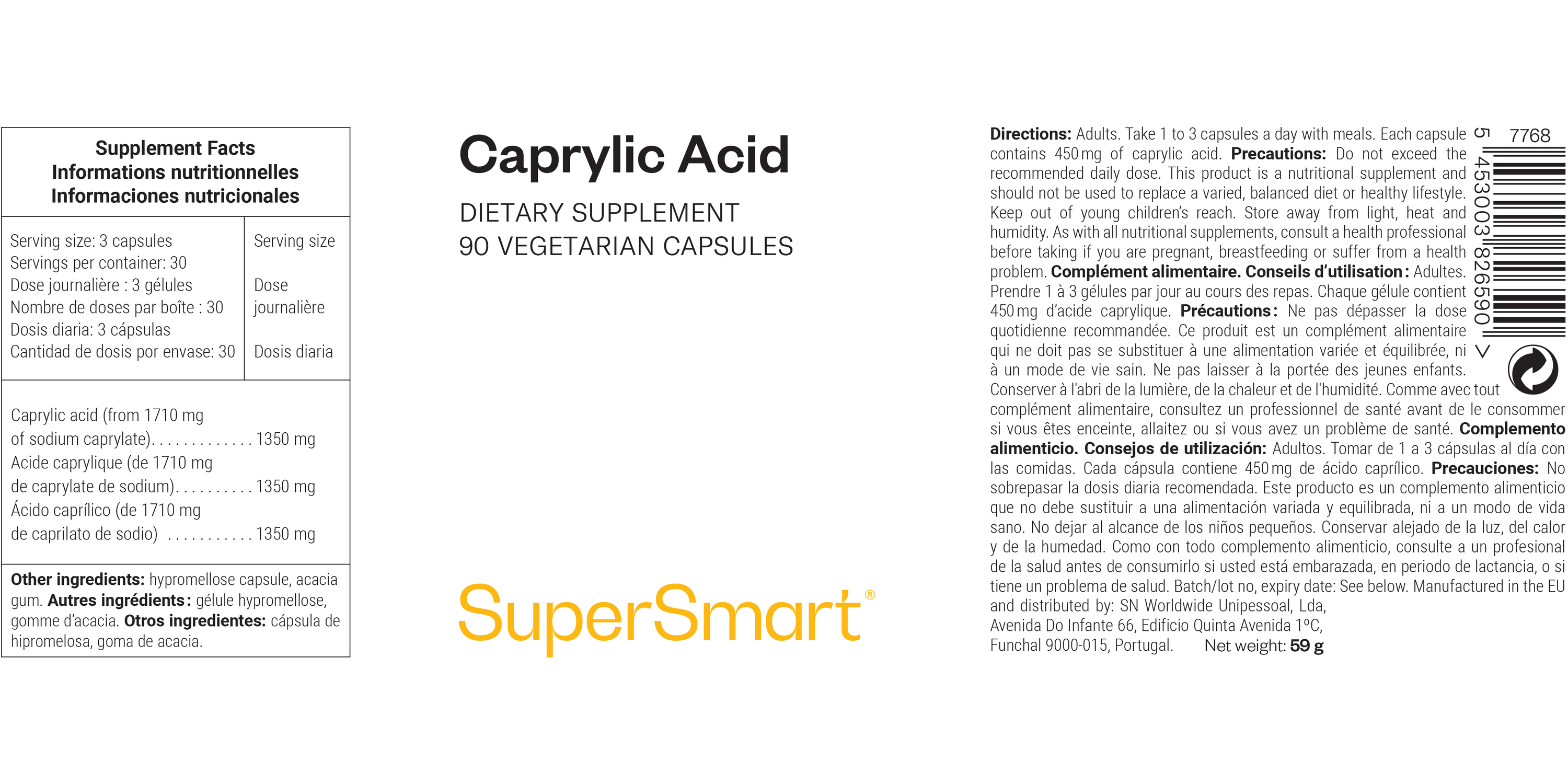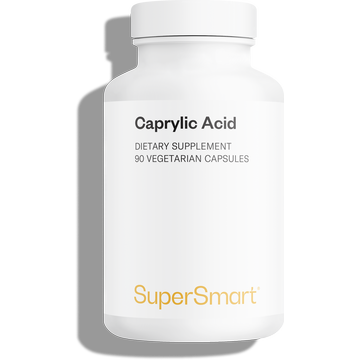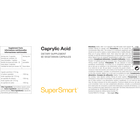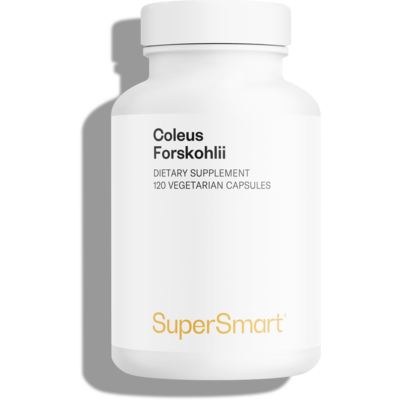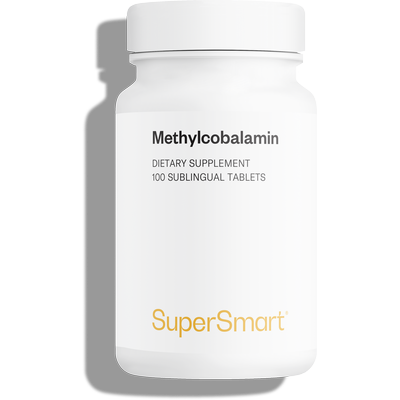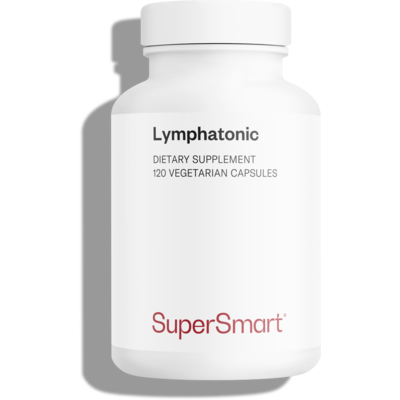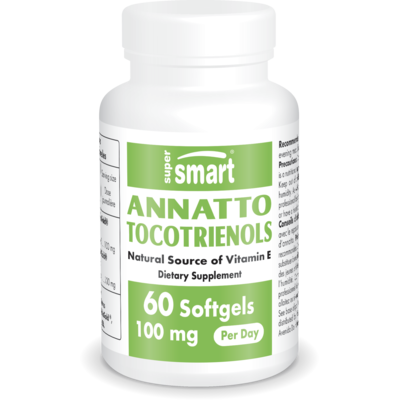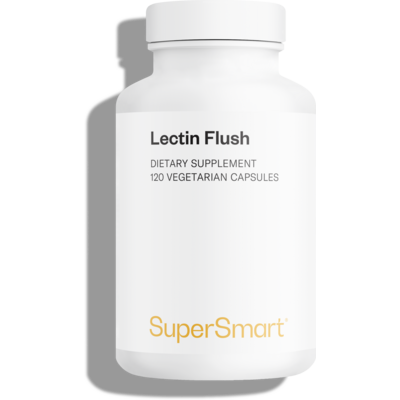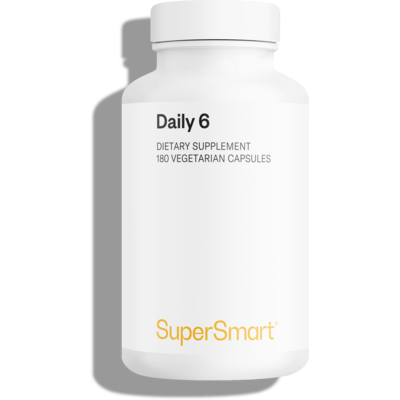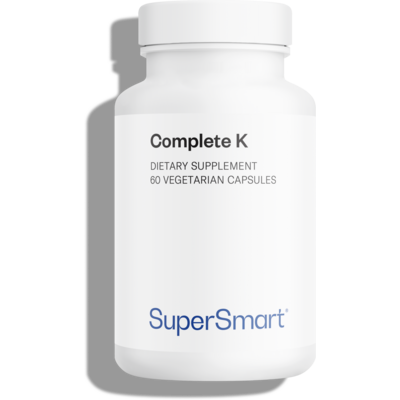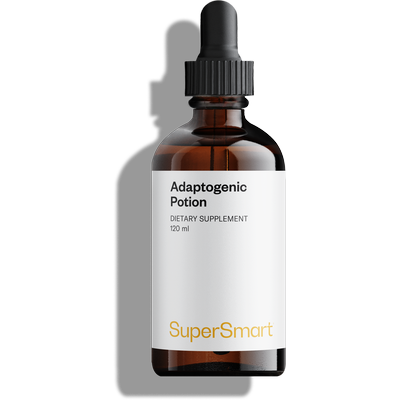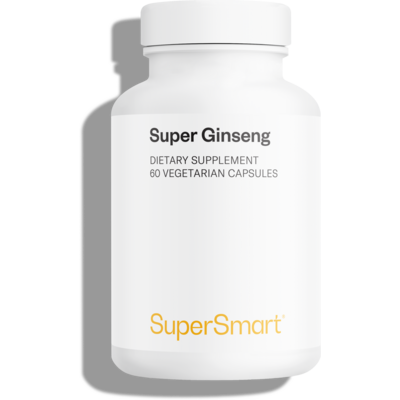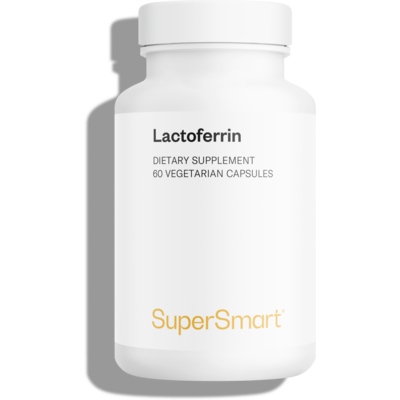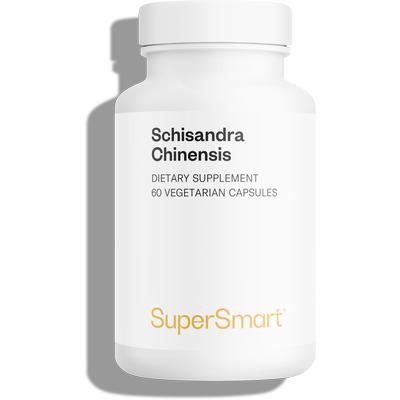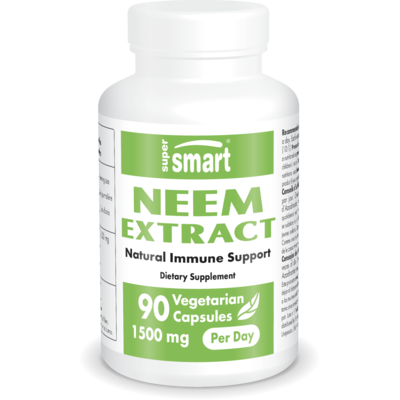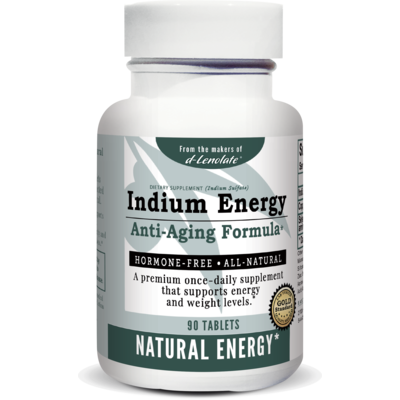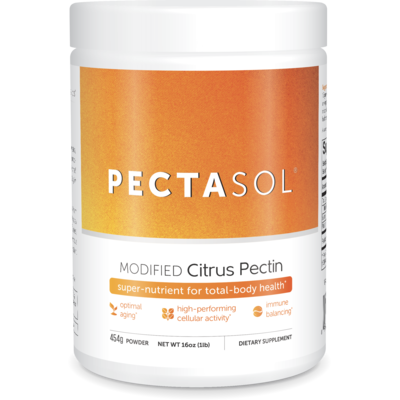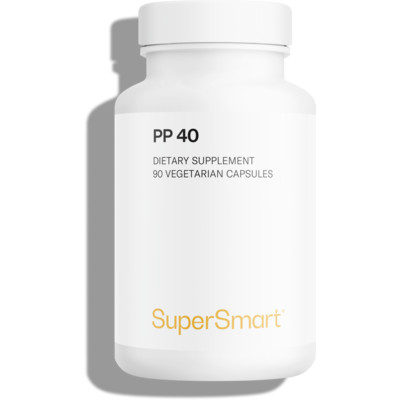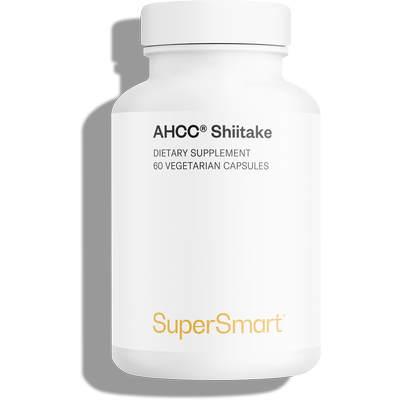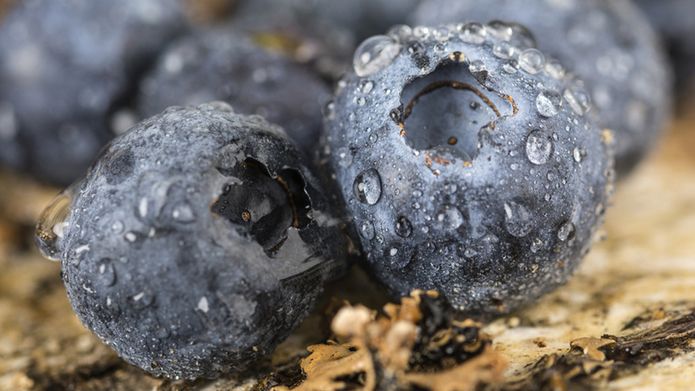
Caprylic Acid
Caprylic Acid Supplement to Support Microbial Balance & Digestive Well-Being *
Create Your Offer
Caprylic Acid is a dietary supplement providing 450 mg of caprylic acid per capsule. It is a natural source of medium-chain fatty acids (MCTs), nutrients that have gained attention due to their role in metabolic wellness and their relevance in dietary approaches such as the ketogenic lifestyle.*
What is Caprylic Acid?
Caprylic (or octanoic) acid is a medium-chain fatty acid (MCT) naturally found in human breast milk, certain animal milks, plant oils such as coconut oil, and specific seeds. These sources contribute to its presence in everyday nutrition.*
Caprylic Acid is mildly acidic (pH ~4.9) and, due to its fat-soluble nature, can integrate into lipid-rich environments within the digestive system, supporting a balanced internal ecosystem and overall gut wellness.*
What Other Characteristics Does Caprylic Acid Have?
Medium-chain fatty acids differ from long-chain fatty acids in their physicochemical and metabolic properties, giving them distinct physiological characteristics:*
- They are rapidly and directly absorbed through the digestive tract and via the hepatic portal circulation, allowing efficient utilization by the body.*
- They may be able to circulate broadly within the body due to their molecular structure.*
- Unlike long-chain fatty acids, they do not rely on chylomicron transport and can move freely through the bloodstream.*
Medium-chain fatty acids can also serve as a source of metabolic energy.* The brain consumes a significant proportion of the body’s oxygen and typically relies on glucose for energy.
In situations such as fasting or when following low-carbohydrate or ketogenic dietary patterns, the body converts medium-chain fatty acids into ketones, which can then be used as an alternative energy source for the brain.*
What is the Candida Genus?
Yeasts of the Candida genus are naturally present in various areas of the body, including the digestive tract, oral cavity, and reproductive system. Under normal circumstances, they coexist as part of the body’s microbial community.*
Maintaining a balanced intestinal environment is one way individuals support harmony among the body’s naturally occurring microorganisms.*
WARNINGS
Do not exceed the recommended daily dose. This product is a nutritional supplement and should not be used as a substitute for a varied and balanced diet or a healthy lifestyle.
STORAGE
Store in a cool, dry place away from direct sunlight, heat, and humidity. Keep out of reach of children.
PREGNANCY AND MEDICAL CONDITIONS
If you are pregnant, breastfeeding, or have any medical conditions, consult your healthcare provider before using this product.
SUPPLEMENT INTERACTIONS
Consult your healthcare provider before use, especially if you are taking any medications or other supplements as there may be potential interactions.
Need Help?
Phone Number
+1 (786) 522-3907
From 9 am to 6 pm (EST)
Email Address
You May Also Like

